 Neuroscience & Mind
Neuroscience & Mind
New Bradley Center Launches; Will Consider Promise and Threat of Artificial Intelligence
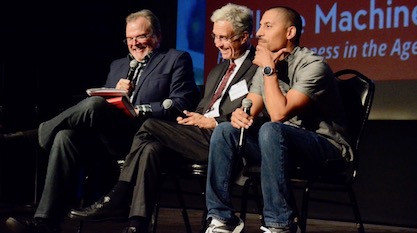
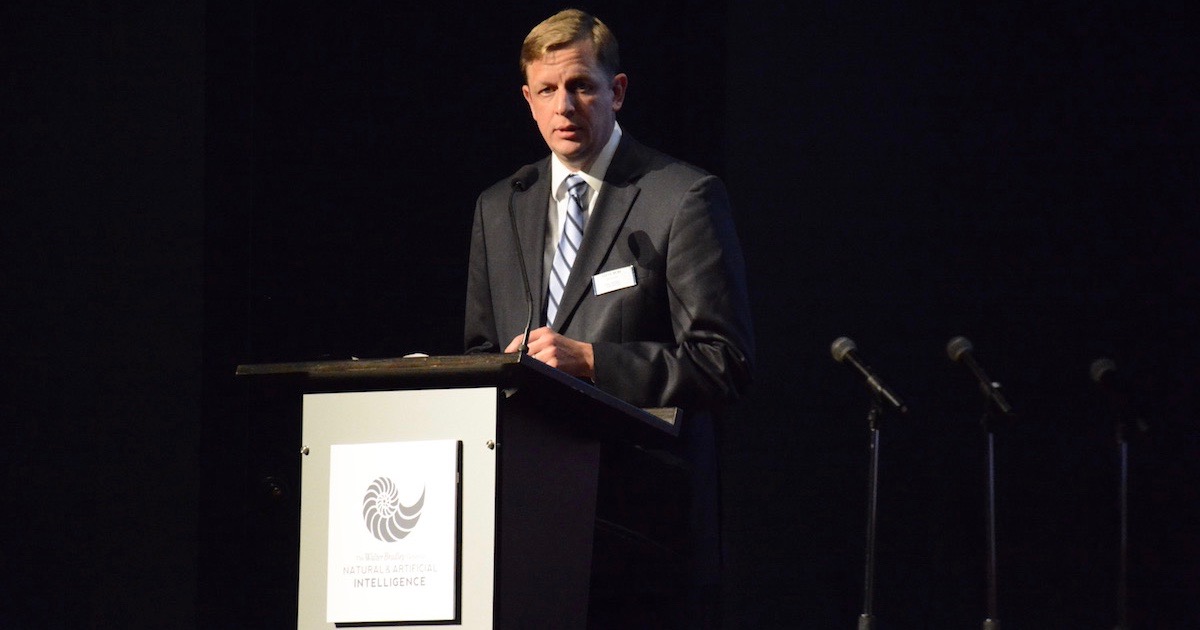
Discovery Institute’s brand new Walter Bradley Center for Natural & Artificial Intelligence launched last week with a superbly provocative and substantive event at the Museum of Flight in Seattle. Above, that’s DI president Steve Buri, delivering introductory remarks.
Besides sharing a few photos from the evening, I want to direct you to some excellent resources at the Center’s handsome new website, including the Mind Matters news source, edited by Denyse O’Leary, one of our favorite contributors here at Evolution News. The “Mission & Focus” of the Center are well described here.
The theme of the evening was framed by a question: “Will the Machines Take Over? Human Uniqueness in the Age of Smart Machines.” John West introduced speakers Robert J. Marks, Michael Egnor, and George Montañez.
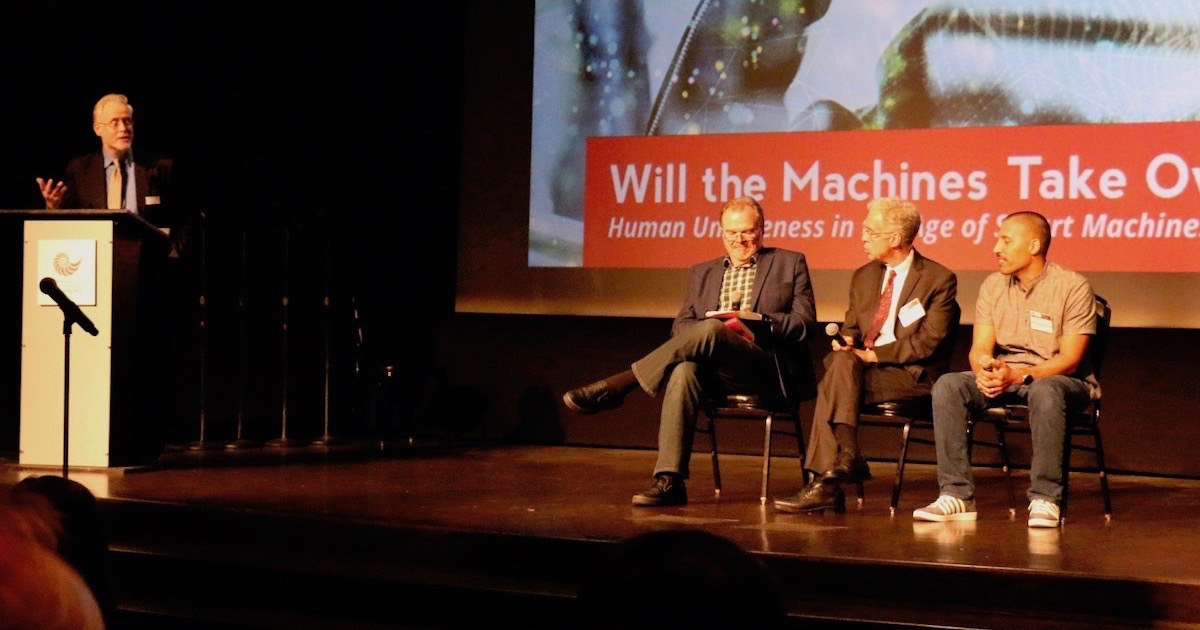
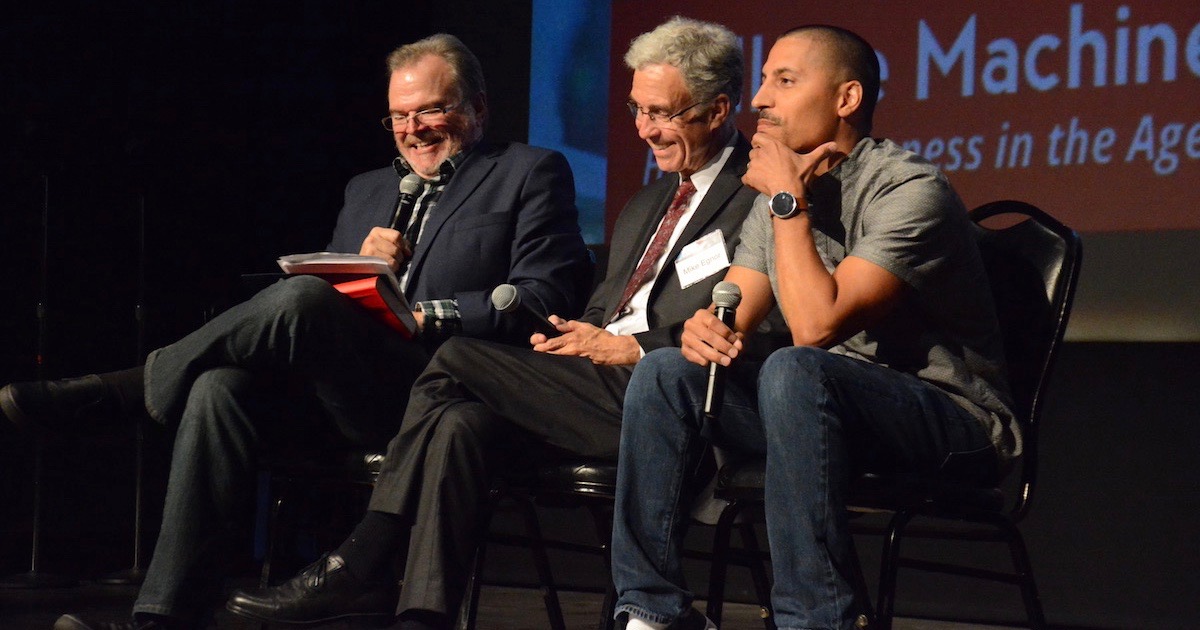
Center director Robert Marks offered not only his own thoughts but also those of William Dembski, in absentia, a remarkable set of comments we’ll share later.
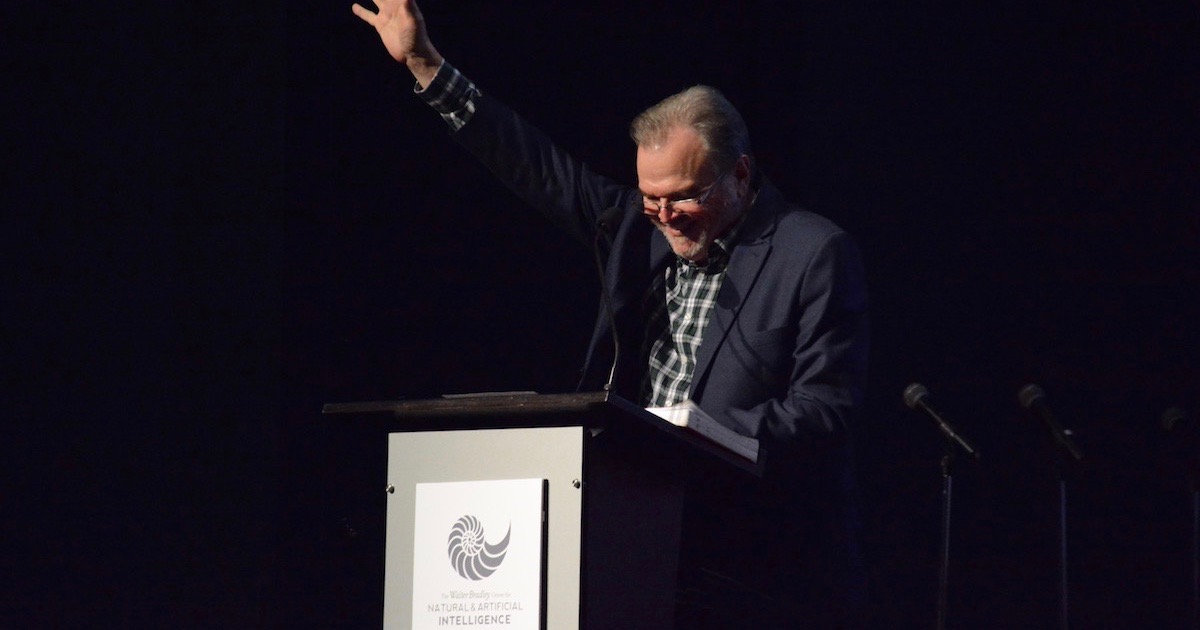
The guest of honor, Walter Bradley himself, was on hand for the event and for a moving and highly personal tribute dinner beforehand. Find Bob Marks’s appreciation of Dr. Bradley here.
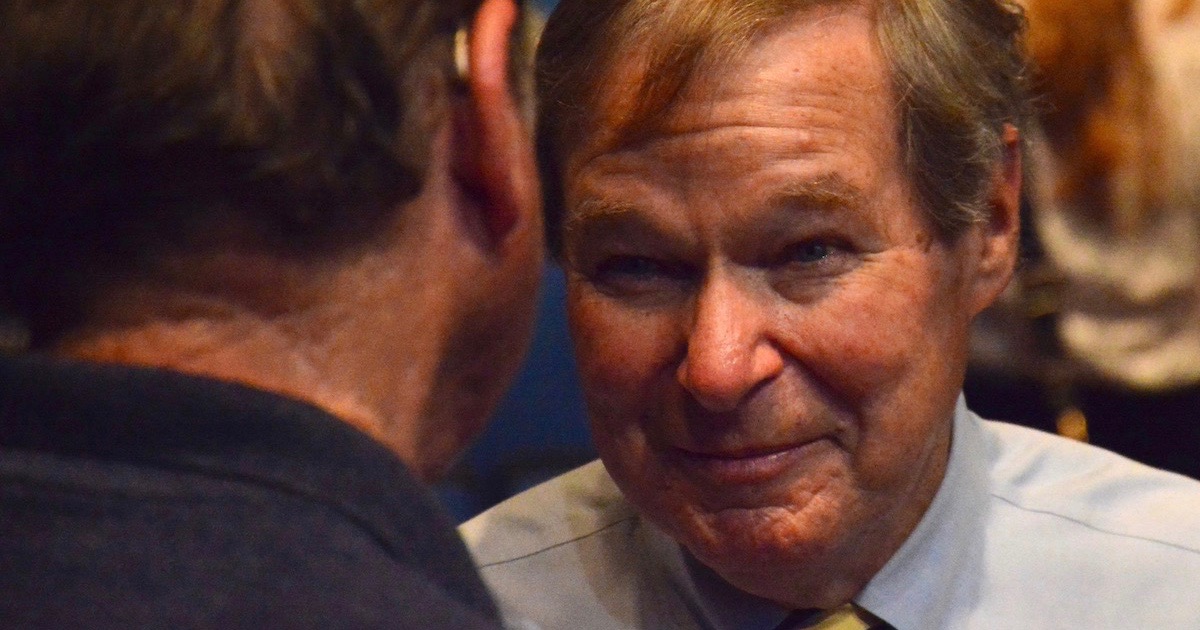
The launch was in some ways like a family reunion for Discovery Institute scientists and scholars, including Michael Behe, chatting here with George Montañez.
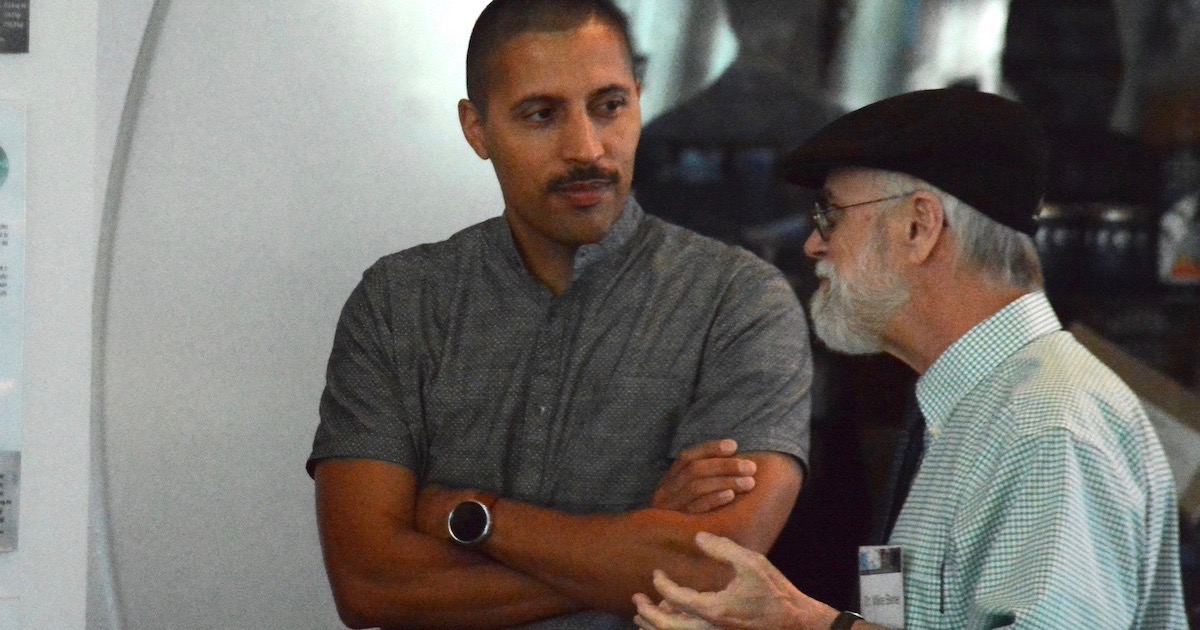
And Jonathan Witt and Günter Bechly.
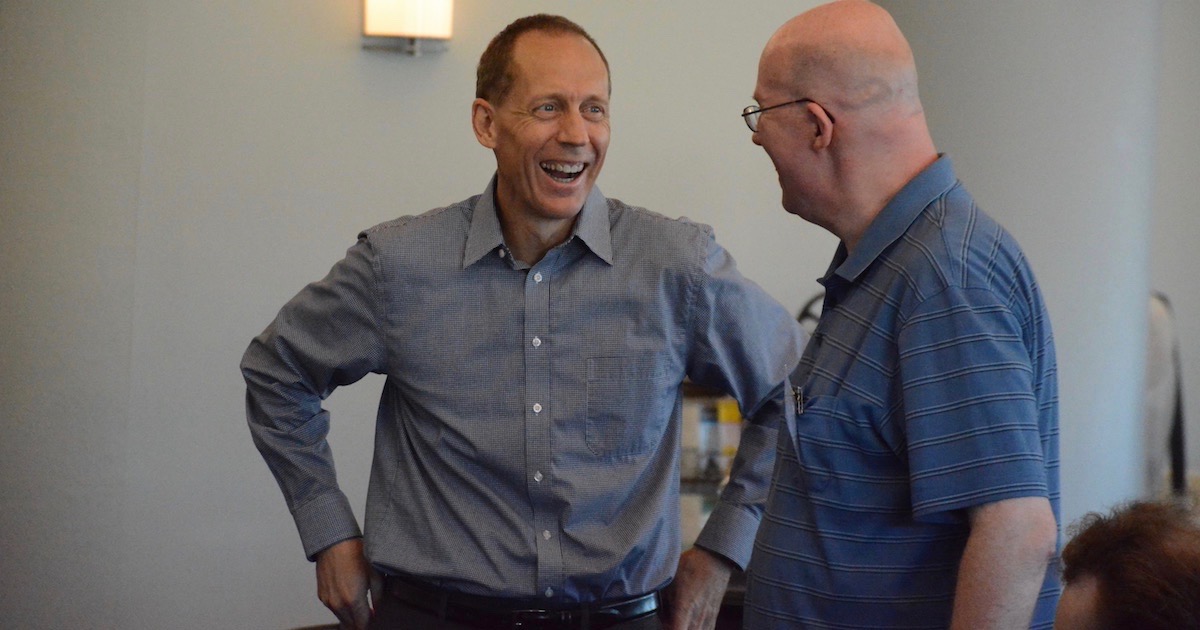
Something I greatly appreciated was the diversity of views about the future of smart machines. In the panel discussion, one of the most interesting moments was a friendly clash between Dr. Egnor and Dr. Montañez over the nature and extent of the disruption to employment and the culture more generally that will accompany the rise of AI. Montañez was fairly sanguine about it, Egnor much less so, citing the writing of French philosopher René Girard on the perils of “mimetic contagion.”
As Egnor has written previously on that here:
AI’s greatest threat to our civilization is its leveraging of contagion. Ideas spread via the Internet faster — almost instantaneously — than we can reflect on them. We see it already, in the rapid destruction of the reputations and livelihoods of people who run afoul of the Internet mob. This is just the beginning; targeting and destruction of individuals and ideas via Internet contagion is in its infancy. It will grow.
This resonates with me. It is fascinating stuff, and chilling. There will be more to share in good time.
Photo credit: Nathan Jacobson.
